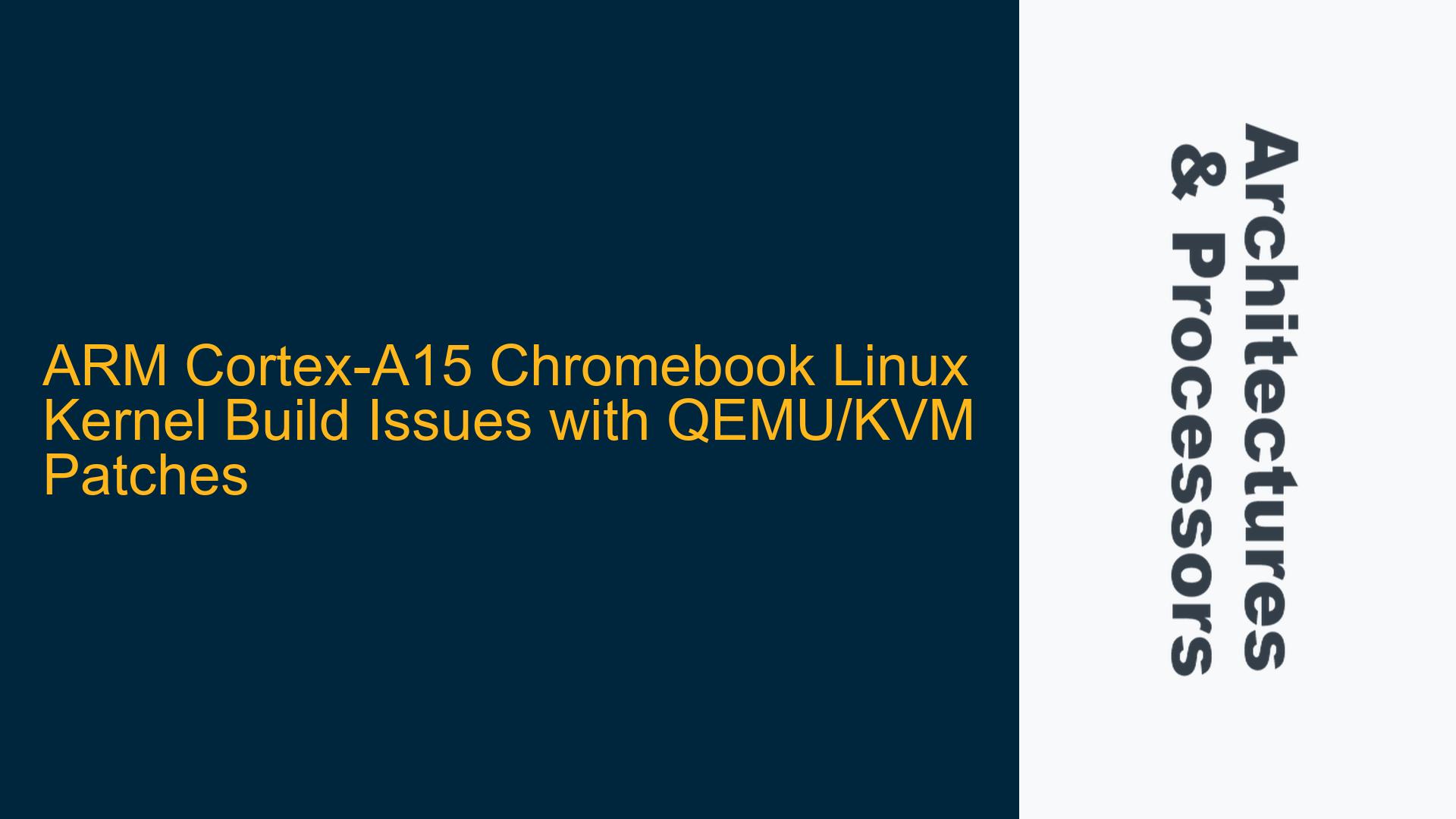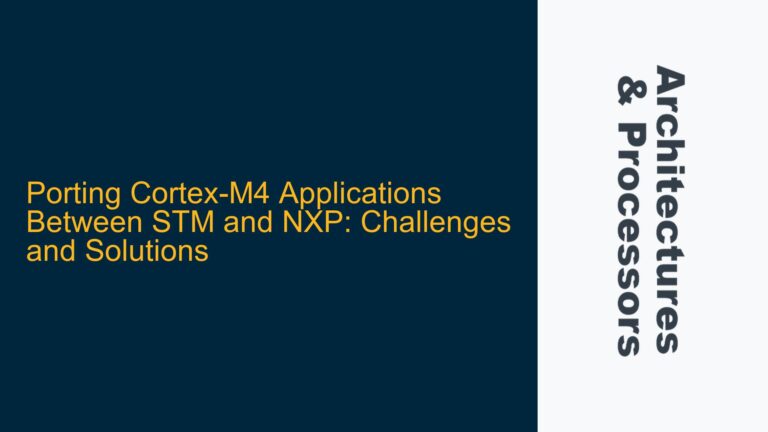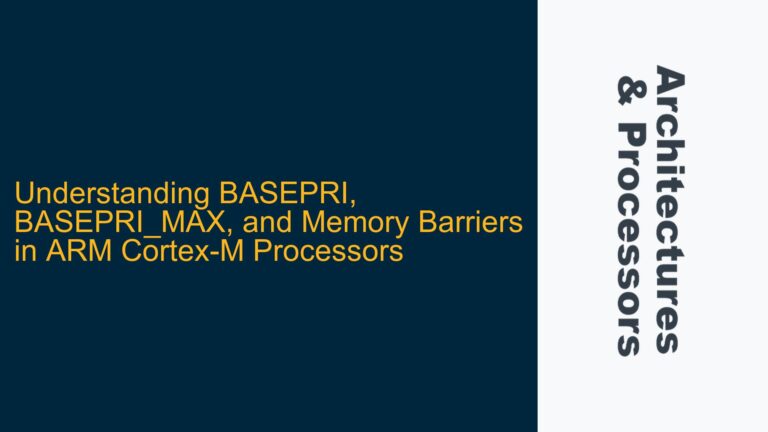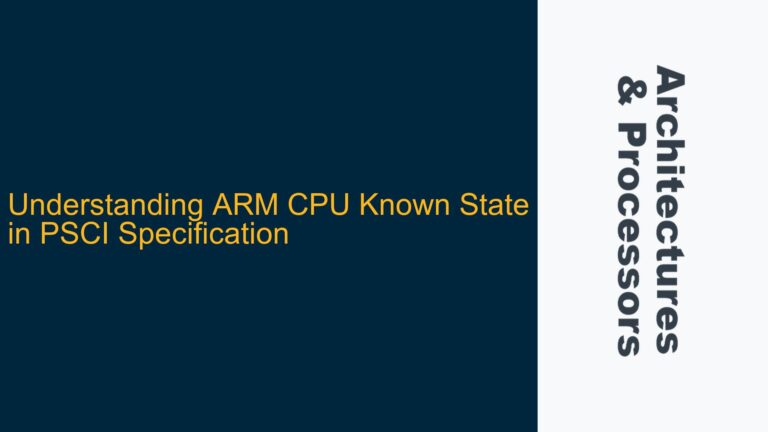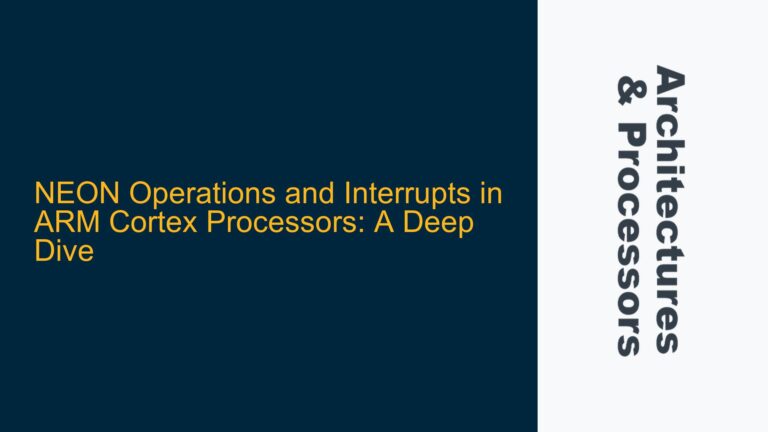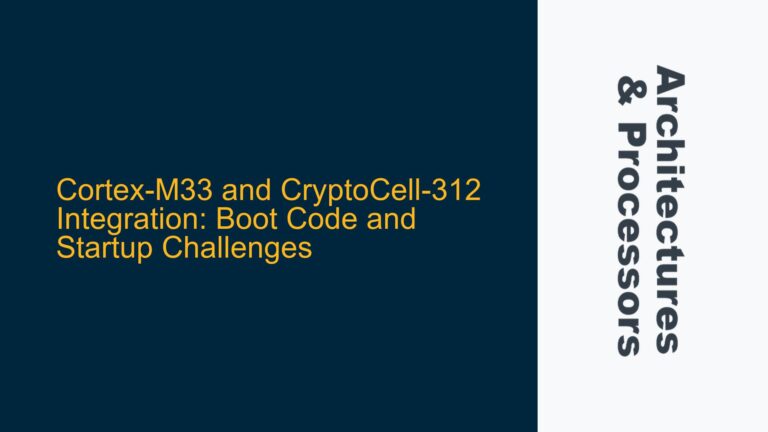ARM Cortex-A15 Chromebook Linux Kernel Build Failures During QEMU/KVM Integration
The Samsung XE303C12-A01US Chromebook, powered by the ARM Cortex-A15 processor, presents a unique challenge when attempting to build and run a custom Linux kernel with QEMU/KVM virtualization support. The primary issue revolves around kernel compilation errors, specifically related to the cpsid i and cpsie i ARM instructions, which are not supported by the selected processor configuration during the build process. This issue is compounded by patch application failures, toolchain misconfigurations, and dependency mismatches, all of which hinder the successful compilation of the Linux kernel for this ARM-based platform.
The Cortex-A15 processor, while capable of running virtualization extensions, requires precise kernel configuration and toolchain alignment to ensure compatibility. The errors encountered during the build process highlight a disconnect between the kernel source code, the applied patches, and the toolchain being used. This disconnect manifests in the form of unsupported ARM instructions, patch application failures, and linker errors, all of which must be addressed systematically to achieve a successful build.
Patch Application Failures and Toolchain Misconfigurations
The root causes of the build failures can be traced to three primary areas: patch application inconsistencies, toolchain misconfigurations, and kernel source code mismatches. The patch application process fails when attempting to apply the RTCfix.patch to the cros5250-common.dtsi file, indicating a potential mismatch between the patch and the kernel source code. This failure suggests that the patch was designed for a different version of the kernel or a different hardware configuration, leading to incompatibilities.
The toolchain misconfigurations are evident in the linker errors during the build process. The multiple definition of 'yylloc' error indicates that the dtc (Device Tree Compiler) toolchain component is misconfigured, leading to symbol conflicts. This issue is further exacerbated by the use of an incorrect or outdated GCC version, which fails to support the ARM instructions required by the kernel source code. The cpsid i and cpsie i instructions, which are used for interrupt handling in ARM architectures, are not recognized by the selected GCC version, leading to compilation errors.
The kernel source code mismatches arise from the use of an older kernel version (Linux 3.12.y) that may not fully support the Cortex-A15 processor’s features. The cros5250-common.dtsi file, which contains device tree definitions for the Chromebook, may also be outdated or incompatible with the patches being applied. These mismatches create a cascading effect, where one error leads to another, making it difficult to isolate and resolve the underlying issues.
Resolving Patch and Toolchain Issues for Successful Kernel Compilation
To address these issues, a systematic approach is required, focusing on patch validation, toolchain alignment, and kernel source code updates. The first step is to validate the patches being applied to the kernel source code. This involves ensuring that the DMAfix.patch and RTCfix.patch are compatible with the specific version of the Linux kernel being used. If the patches are not compatible, they must be either updated or replaced with versions that match the kernel source code. In some cases, manual adjustments to the patches may be necessary to resolve conflicts, such as the yylloc symbol definition issue.
The next step is to align the toolchain with the requirements of the ARM Cortex-A15 processor. This involves selecting a GCC version that supports the ARM instructions used in the kernel source code. The cpsid i and cpsie i instructions, for example, are supported by GCC versions 7 and above. However, the specific version of GCC must also be compatible with the kernel source code and the patches being applied. This may require installing multiple GCC versions and using the update-alternatives command to switch between them during the build process.
Once the toolchain is properly configured, the kernel source code must be updated to ensure compatibility with the Cortex-A15 processor. This may involve updating the cros5250-common.dtsi file to reflect the correct hardware configuration and ensuring that the kernel configuration options are set to support the processor’s features. The .config file in the kernel source directory should be reviewed and updated to include options such as CONFIG_ARM_VIRT_EXT for virtualization support and CONFIG_ARM_LPAE for large physical address extensions.
Finally, the build process must be carefully monitored to identify and resolve any remaining issues. This includes checking for linker errors, symbol conflicts, and unsupported instructions. If errors persist, additional debugging may be required, such as examining the assembly code generated by the compiler or using tools like objdump to analyze the object files. By following these steps, it is possible to successfully build and run a custom Linux kernel with QEMU/KVM support on the Samsung XE303C12-A01US Chromebook.
Detailed Steps for Patch Validation and Toolchain Alignment
-
Patch Validation: Begin by verifying the compatibility of the
DMAfix.patchandRTCfix.patchwith the Linux 3.12.y kernel source code. If the patches are not compatible, search for updated versions or manually adjust the patches to resolve conflicts. For example, theyyllocsymbol conflict can be resolved by changing the lineYYLTYPE yylloctoextern YYLTYPE yylloc;in thedtc-lexer.lex.canddtc-parser.tab.cfiles. -
Toolchain Alignment: Install multiple GCC versions (e.g., GCC 7, 8, and 9) and use the
update-alternativescommand to switch between them. Ensure that the selected GCC version supports the ARM instructions used in the kernel source code. For example, GCC 7 or later is required to support thecpsid iandcpsie iinstructions. Use the following commands to install and configure GCC versions:sudo apt install gcc-7 gcc-8 gcc-9 sudo update-alternatives --install /usr/bin/gcc gcc /usr/bin/gcc-7 7 sudo update-alternatives --install /usr/bin/gcc gcc /usr/bin/gcc-8 8 sudo update-alternatives --install /usr/bin/gcc gcc /usr/bin/gcc-9 9 sudo update-alternatives --config gcc -
Kernel Source Code Updates: Update the
cros5250-common.dtsifile to reflect the correct hardware configuration for the Samsung XE303C12-A01US Chromebook. Review and update the.configfile in the kernel source directory to include options such asCONFIG_ARM_VIRT_EXTandCONFIG_ARM_LPAE. Use the following commands to generate and update the kernel configuration:make ARCH=arm CROSS_COMPILE=arm-linux-gnueabihf- menuconfig make ARCH=arm CROSS_COMPILE=arm-linux-gnueabihf- oldconfig -
Build Process Monitoring: Monitor the build process for errors and warnings. If errors persist, use tools like
objdumpto analyze the object files and identify the root cause of the issue. For example, the following command can be used to disassemble an object file and examine the generated assembly code:arm-linux-gnueabihf-objdump -d init/main.o
By following these detailed steps, it is possible to resolve the patch and toolchain issues, update the kernel source code, and successfully build a custom Linux kernel with QEMU/KVM support for the Samsung XE303C12-A01US Chromebook. This process requires careful attention to detail and a thorough understanding of the ARM architecture, but with the right approach, the issues can be systematically resolved.
